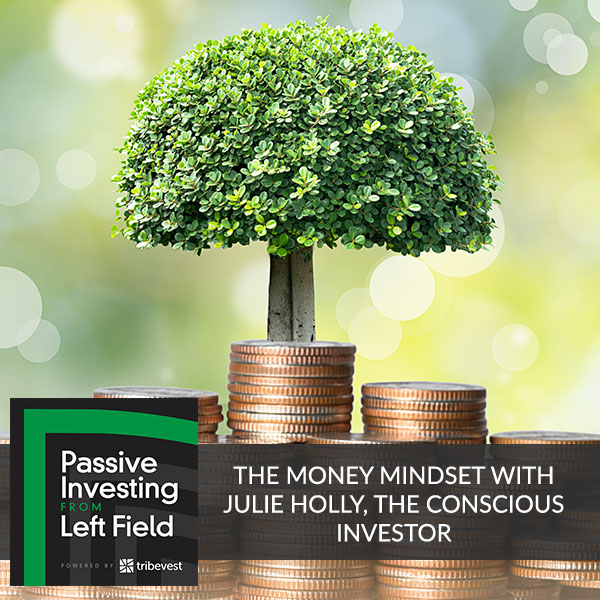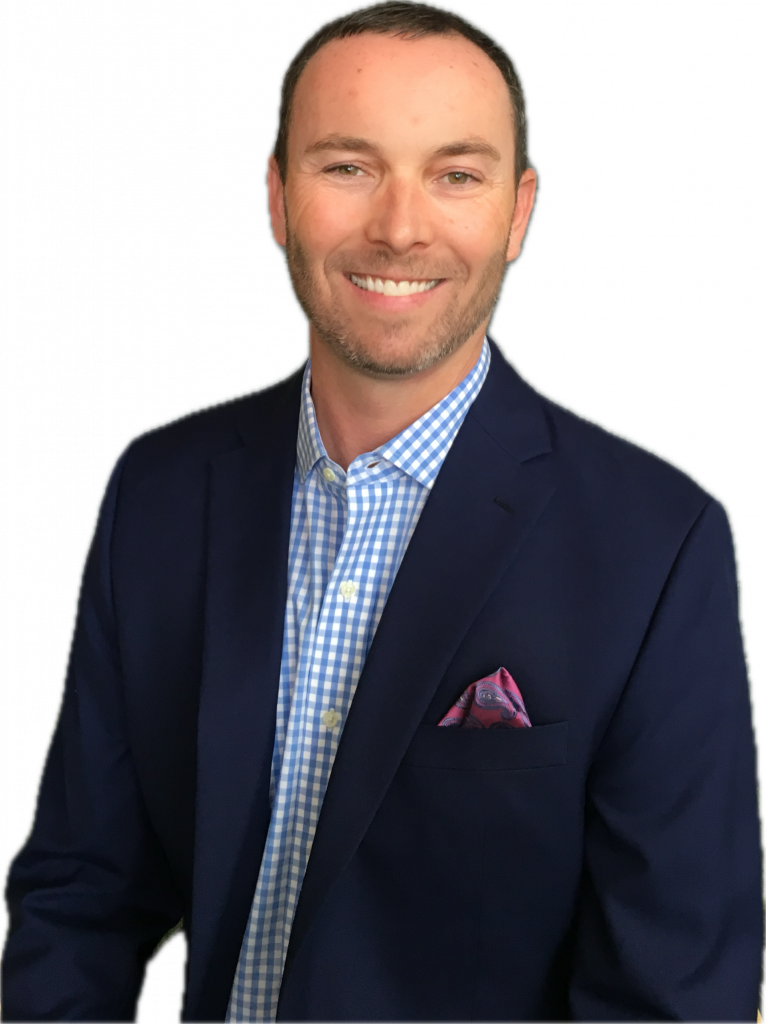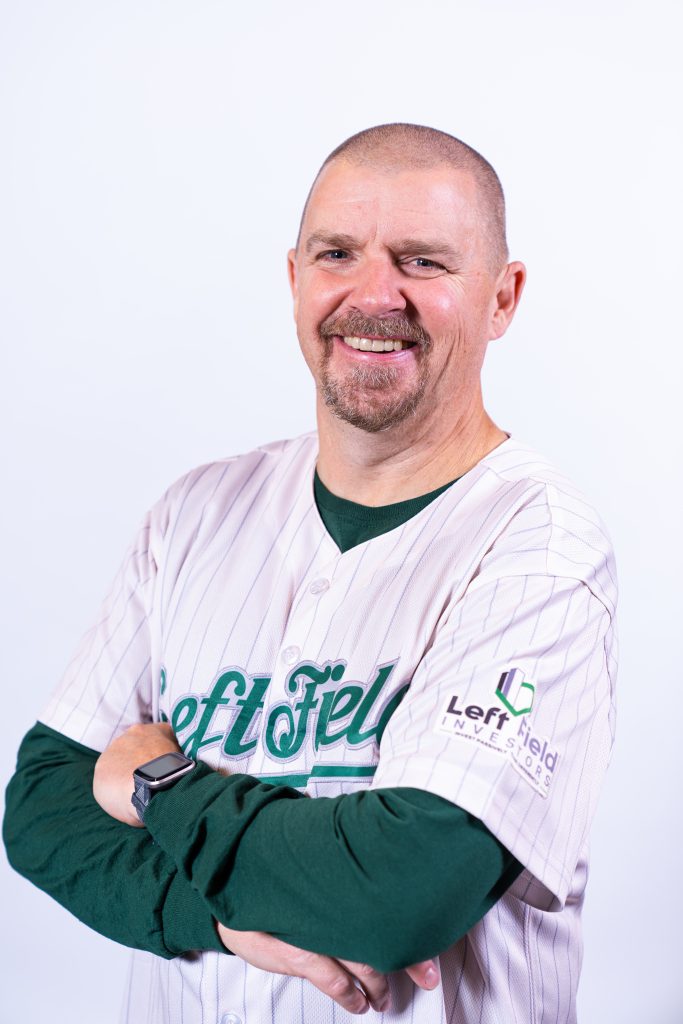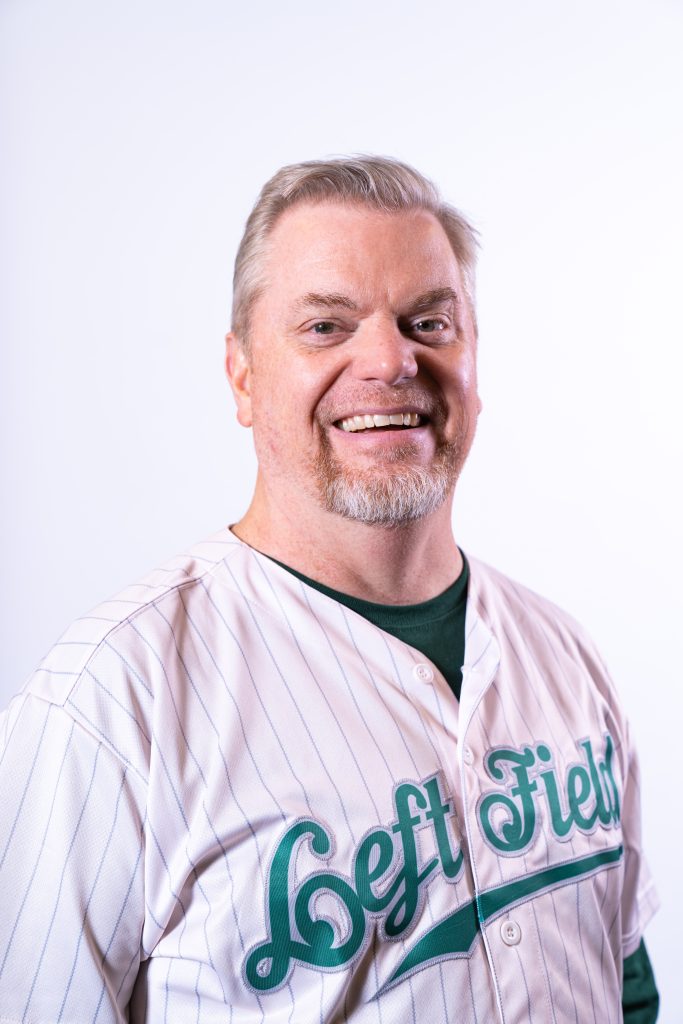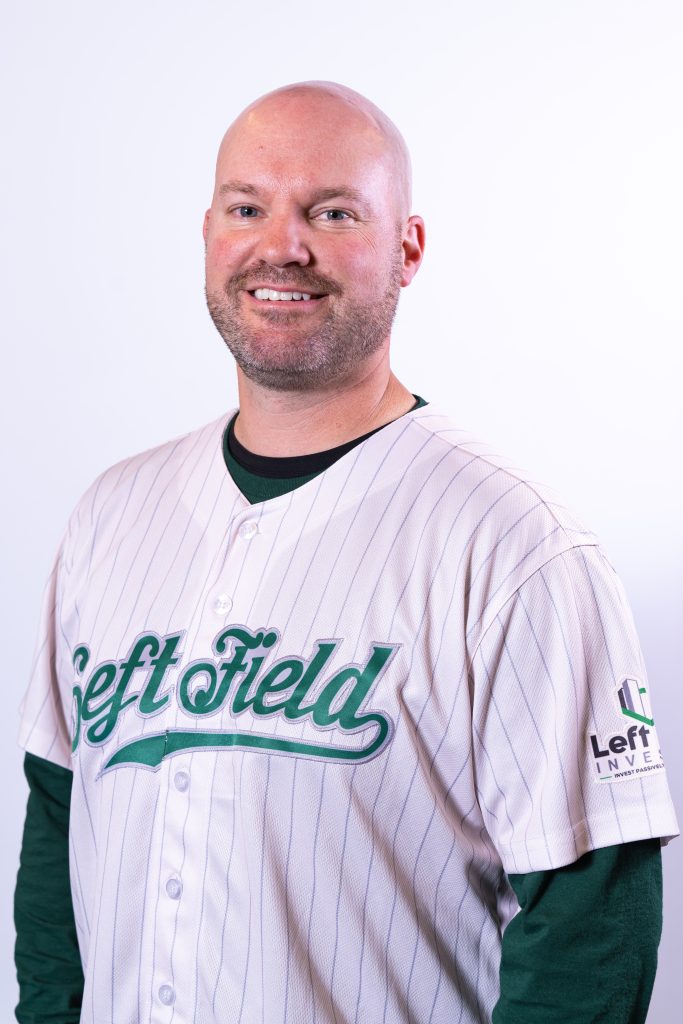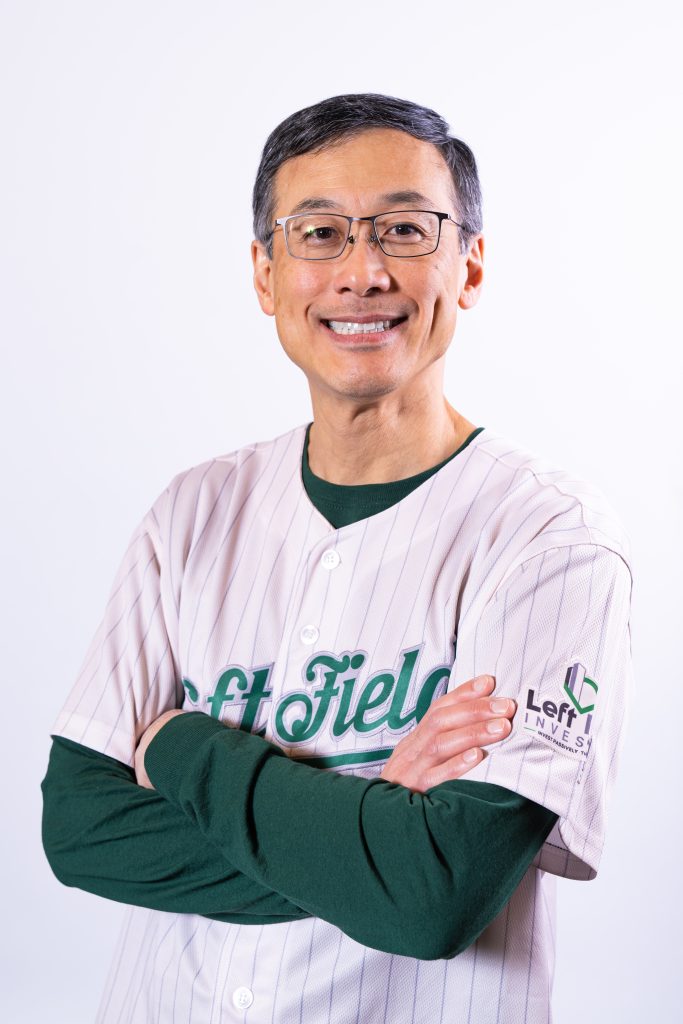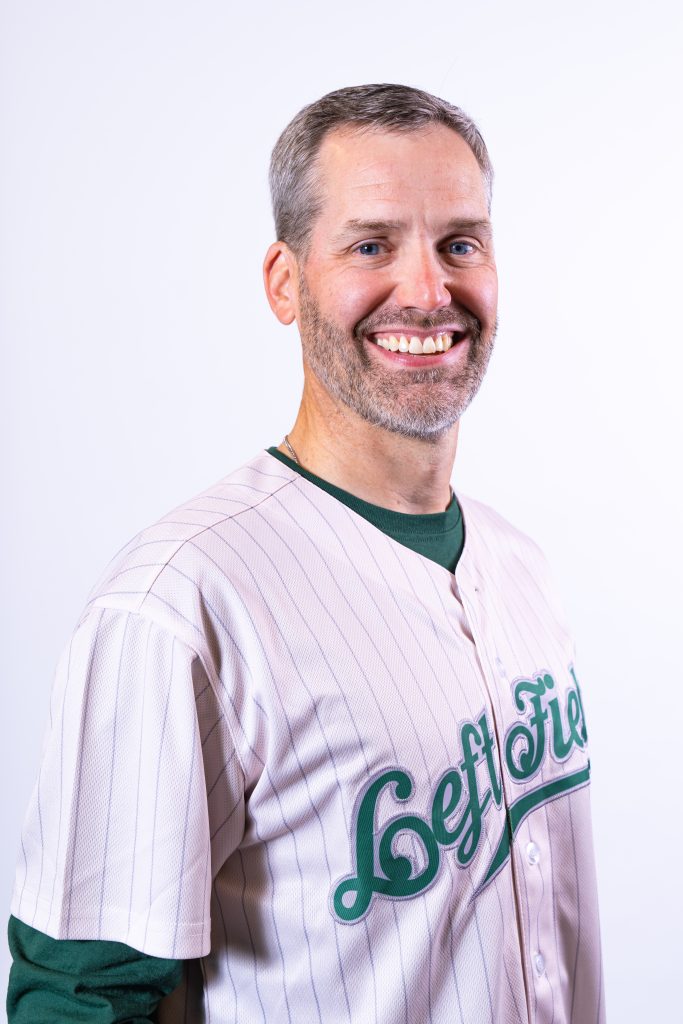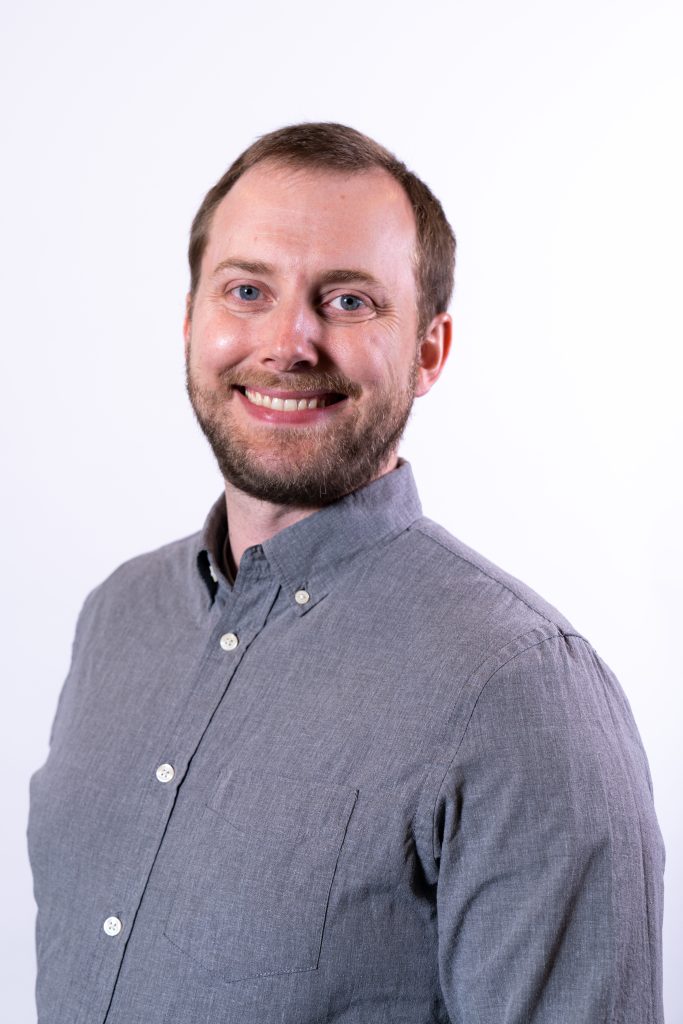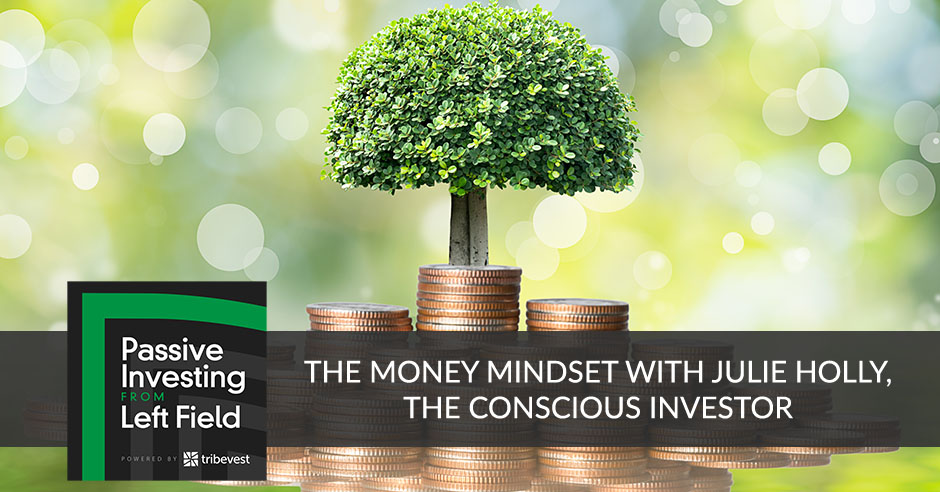
Money is a tool and a resource, so it is important you understand how to use it properly. Too many people think of money as the final goal, but a better mindset is to think of how to use that tool or resource to achieve your goals. Join Julie Holly as she discusses with Jim Pfeifer her money mindset and how to adjust your thinking so money is the tool you use rather than it using you. Julie is the founder of Three Keys Investment and host of the Conscious Investor Podcast. She’s a former public-school teacher and is now a passive investor in both general and limited partnerships! Tune in to learn valuable insights from someone who sits on both sides of the table as an operator and an investor!
—
Listen to the podcast here
The Money Mindset With Julie Holly, The Conscious Investor
I’m excited to have Julie Holly with me. She is the Founder of Three Keys Investments and is the host of The Conscious Investor Podcast. She’s a former public school teacher and is now both a passive investor and a GP. We’re going to get a lot of good information from her since she’s on both sides of the table. Julie, welcome to the show.
I’m happy to be here. I’ve been reading and enjoying and scouring the show. It’s fun to be on this side, able to serve. Thank you.
We appreciate it. We’re going to have a good conversation. The way I like to start is to hear your financial journey. How did you go from public school teacher to passive investor to GP? If you can tell me how you got where you are.
I started teaching at 22. I graduated early as an overachiever and so I was still a child when I entered the public school classroom. I think my first contract was like $27,000 for the year of teaching school. Not making much money at all and my governor, at the time in California where I lived, happened to be Arnold Schwarzenegger.
We all know who Arnold is. He did this crazy thing and I don’t care if you love it or hate it or any of that, it changed my life. He incentivized educators on their test scores. I wasn’t expecting anything but I got a $10,000 bonus. That obviously, when you’re making $27,000 as a young teacher. That’s a substantial amount of money.
My dad is in residential real estate sales. He was. He’s passed since and so as my grandfather. I was the third generation in real estate and my dad encouraged me. He said, “You can use that as a down payment.” It was a super-hot market. It was before the crash and he was talking to me about the escalator, the equity escalator.
I was trying to wrap my young head and mind around that because if you’re a younger person listening to that if you’re in your twenties, we didn’t have access to podcasts and YouTube. Access to this information wasn’t commonplace. He was explaining the equity and I trusted my dad because I adored him and bought my first home.
That home ended up, I realized, “I have another bedroom. I could rent that bedroom out and offset and have some breathing space.” That becomes what we now call house hacking, one version of it. Once my husband and I got married, we determined that let’s live this modest lifestyle and let’s acquire homes throughout our journey. As we live, we’ll buy a nice home on one income. Let’s live off of one income.
That’s how our lifestyle is going to be. One income and we’re going to buy homes. We’ll rehab them and we will lease them out to residents then we’ll rent and repeat. That was our game plan then we had another child and that shifted things. I will say I feel like I’ve lived in a lot of different income brackets and it’s all about how you’re approaching things. Money is a tool. It’s just a resource. It’s not the stoppings part. It’s an opportunity.
Money doesn’t have to be a limitation in your investing or you taking your very next step. We decided you, we’re doing great at this single-family thing, like that’s fine. I manage the properties like, “You’re 1,000 miles away, that’s fine.” If you were right here in my same town, I’m not going to go over and fix a toilet. I’m not going to go fix a roof, so it doesn’t make a difference to me where it is geographically.
[bctt tweet=”Money is just a tool. It’s just a resource. It’s not the stopping part. It’s an opportunity. Money doesn’t have to be a limitation in your investing.” via=”no”]
From there, we decided had our second child. I felt uncertain about where the economy was headed. We’d already been through the big crash. It was about that time where you would anticipate. We were in elongated cycle. We’re finally hitting the end. We should be done with this. We thought, “We’re going to time this. We’re going to sell the peak of the market and we’re going to cash out, then we’ll figure out what to invest in.” We did.
If we would’ve kept it a little bit longer, we could have made a lot more money but that money turned into seed money into multifamily investing. That’s because I got antsy having that money in the bank account. I told my husband, I’m like, “I can’t handle this. Money in the bank is not a good thing. Let’s figure this out.” He said, “Explore the options and tell me what you find and see what you want to do.” That’s ultimately what led me to apartment syndication.
That’s great. I’m a former teacher too, so I get it. I did it in a different way where I went and got a job that made some money then I could be a teacher and not have to worry about that as much. I got into real estate after that, so I love having a teacher into a real estate. That’s super interesting. Digging a little bit on why did you think multifamily was the place to go? A lot of people do that.
I did the same thing. I had these single families. I’m like okay, “One door seems great. Why not buy a 22-unit?” I bought those on my own before I found a syndication. Did you go right in? Are we talking like you got into multifamily as in quads or small ones or you started syndicating or you started being passive?
Go big or ho home. Once I discovered this, once my husband said, “Ken gave me a release.” In my opinion, that’s a great marriage where you can trust each other and say, “Go explore and come back to the table and see what you got.” I was listening to BiggerPockets. I have my faith testimony in Christ, then I have my real estate testimony, which is fun.
I’m driving up to the gym, going up North Hill and I’m listening to BiggerPockets. Monique had just been complaining the day before. Not complaining but just, “I have never heard a woman on this podcast and I’ve been listening for months.” I was surprised at that. Two days later, Monique comes on and she talks about house hacking and apartments indication. I was like, “I saw how God brought together every facet of my life from being a public school educator in a heart to serve and support others to my experience in real estate being born and bred in real estate.”
My husband is a broker in real estate. We’re a partner in a RE/MAX company, all of this stuff. I’m like, “I know education, real estate, and I know I have the heart to serve people.” All of these things come together in this syndication model because if you’re looking to serve and support your investors, then you need to be providing a level of education. You need to be understanding what their needs are so that you know you’re offering them the right opportunities.

It felt like such a perfect thing. I have not stopped. Since that moment, it was a fork in the road. It was almost equal of going uphill and downhill at the same time, meaning it’s easy. It’s so much fun. It’s something that I’m extremely passionate about because it gives access to real estate investments to everybody who wants it at their level.
They don’t have to deal with anything. As we always say like the toilets, the termites, the tenants and things like that. Fortunately, when I managed properties, I never had any of those issues. I did a good job and things do happen but I was good at managing. The other element of that is being able to serve and support the investors. Ultimately, when I went into syndication, I was going to say the downhill is easy because I’m extremely passionate about it.
The challenging part is as a public school teacher, I don’t have a background in business and finance and some of those elements in the economy. I’ve had to intentionally earn my own MBA if you will. It’s not an MBA. I don’t mean to reduce anybody who’s gone through that process at all but that’s where the bulk of my learning has been focused on.
I understand these elements but in order for me to advocate and support my investors, I need to learn these other elements. I’m in a constant stage of what are the weak spots? If I want to truly, as I call it, I have layers of insulation for my investors. If I truly want to further insulate my investors in their investments through Three Keys Investments, then I need to continually grow so that I can provide that to them.
How did you get started? You sold all your single families. You have a bunch of money in the bank. You decide, “I want to be a syndication.” How do you go about doing that? Had you invested in any passive deals yet?
I hadn’t at that point but by nature, I already knew. Oftentimes people learn about syndication and get involved. They join a mentorship program and they’re trying to figure out, where do I fit? What’s my role in this? If I were on a team, what would my role be? I’ve always known what my role was. From the moment I heard Monique talk about apartment syndication, I knew I wanted to educate and serve investors.
It was very easy in that capacity to be very focused on how am I learning and growing to support passive investors. In that process, it makes sense to say, “Have I passively invested? Do I understand what those feelings are when you are wiring that money to somebody that you feel that you vetted to a deal that you’re pretty sure it’s a good deal if you’re new to this.” There’s such a high level of trust and it was very painful because it was a matter of that this is part of our seed money to invest.
We were investing it. We just weren’t investing it on the active side. We invested a chunk of money on the passive side. I think if I believed wholeheartedly and my husband supported me. If I’m ever going to ask people to invest with me, I need to know what that process looks like and feels like so that I could support them in the most powerful way.
Now, you’re both. You’re investing passively as an LP and also, you are doing the GP thing as well. Is that correct?
I love both worlds. Yes, but I am extremely particular on the GP side. I’m extremely particular on who I’m partnered with in the deals that I am partnered in. I’m not about having a certain amount of units and I’m not about having closed X amount of deals each year. I want always to do the right deals in the right time with the right partners.
That’s where I created the layers of insulation for my investors. It’s a matter of what is the track record of my partners. I need to know who I’m partnered with and I want to know what their track record is and what they’re bringing to the table. Before we even get to that part, I want to know my partners for at least a year before we partner up.
In general, I break bread with my partners. I probably have collaborated in some capacity to create maybe some media, a podcast, eBook or something. I’m probably collaborated in a very small form with a partner because it allows you to see their character. It allows you to see how they show up, to test drive the communication and to see is this a good fit.

If you’re in a deal, you’re in a deal for 3 to 7 years and you need to know who you are truly partnered. That closing date, when you close on an asset, that’s not the finish line. That is the starting line. That’s when you said your nuptials and everything. Now you’re walking down the aisle in a different capacity and you are joined. I take that very seriously.
This is great because I want to get into this topic of vetting sponsors. That’s one of the top things that people at Left Field investors are looking for. It is like, “How do I vet a sponsor?” We’ll get into that but I’d like to start on how do you vet a deal that has multiple GPs? How would a passive investor looking at a deal? Maybe some of your deals where there are multiple GPs.
Do you spend time vetting the one you’re dealing with or do you need to research all of them? Do you trust the person you’re dealing with to have vetted the others for you as you do? Do you trust them to analyze the deal, then you double-check it? How does that process work both as a passive and when you’re going to be a co-GP?
On the passive side, one of my beliefs is to understand who has the voting rights. Where is the bulk of the power if it’s a larger GP team? I’m involved in three different active deals at the moment. I’m starting to think technically four active deals at the moment and those GP teams vary in size. One of them has a larger GP team to it. However, the voting rights within that GP team are very lopsided. Many of those co-GPs don’t have very much clout when it comes to votes.
Ultimately, that’s what’s going to win. Who is calling the shots? As I look as a limited partner into deals, I want to know who’s calling the shots because ultimately, the business plan is coming down to who is running the day-to-day. If you’re concerned, then it’s who is the day-to-day? Who is asset manager? What is their track experience? How much clout do they have or is that somehow it should never be, but is that somehow diluted from some other voice that isn’t in the granular day to day? That would be one of the key things that I would look for on the passive side and do look for.
Why so many GPs? I don’t know the numbers and it doesn’t matter. I see some deals where there’s one GP. I see some deal where there are 2 or 3, then you see somewhere there are 10 or 11. My question is why do we need so many GPs on a deal? Unless, maybe some of them are on there to learn and get trained. My perspective as a passive investor, I don’t want to give you my money so that you can learn something. That should be on your time. Not on my dime. Can you talk about why you need all these GPs on some of these deal?
I have participated in a GP deal as a co-GP where it was a larger team and highly experienced operators providing an experience, an opportunity for other co-GPs that are rising up. I have been on that side of things. I’ve also been on the side now. I’m in a ground-up development project. That GP team looks like an army.
When I look at our OM, the deal deck, I’m like, “It looks like a lot of people at the table.” As we have our developer on the GP. We have our builder on the GP. Ultimately, there are four of us companies that have partnered together in this. When I look at it as a company side, I’m like, “Technically, we five companies involved in this but within those companies, you have multiple people.”
That provides an interesting scenario. There can be different reasons why there are lots of GPs at the table. In speaking to the ground-up development, I’m very happy. We also have an architect on our team. The way our team is structured and positioned for tackling a 144-unit class A development project from buying raw land to end titling it to going through this entire process. It made sense and we very much shoulder a lot of those responsibilities together.
There can be times where a larger GP team can make sense, what skills are being represented and that’s what you also look at. There are X amount of people but there are five companies. What skills are these people bringing to the table to warrant them being on that GP team? I will tell you, I am now at a point where I am even further selective. That’s why I’ve created some parameters around how I select my partners.
I was already fairly clear on how to select my partners. However, that became even clearer because when you are on a larger GP team, I happen to be a woman, a wife, a mom and a former teacher. In other words, I’m allowed to say this. I do control a lot. By nature of enjoying some level of control, I have found that with my development deal aside because there is a purpose for everybody being there. I have gravitated towards smaller GP teams to where it is a more intimate setting where you can have those conversations and not have to worry about reaching quite so many people. That’s a lot of information.
No, it’s excellent. These are some of the things that passive investors don’t deal with and don’t understand and it makes more sense. On a development deal, I could see more partners because as you said, you have a developer who’s got some specialties there. You have the architect who has specialties there. That makes more sense to me than twenty GPs on a value add or a small multifamily. I want to jump into the current market for multifamily. Again, I like this conversation because we are talking to two people now. We’re talking to the GP and the LP at the same time.
It’s fascinating because you can get both sides. What opportunities are you seeing? Are you seeing development stuff and that’s why you’re doing that or are there still value add opportunities? Can you talk a little bit about what opportunities you’re seeing as a GP and what you’re seeing as an LP with all of the changes that have happened in the last few months?
The development is interesting. We are in a legit housing shortage situation in the US. I am going to go into this nuance and you can stop me if at any point because you’re the host. One of the reasons that we are in that housing shortage is that prior to the pandemic, we already had a housing shortage, then we had this whole shutdown. We had containers that went from taking costing $3,000 or so to ship then they inflated up to $28,000 to ship. Now they’re finally coming back down to around $6,000 to ship.
This whole supply chain issue encumbered the development side of things. There’s this other element that many people are unaware of. This is very important for limited partners to understand as well and that is zoning regulations. Very much of our development has been hindered in the expansion of housing for residents who genuinely need it. It has been hindered by zoning regulations. I have a soapbox on that.
I won’t hide because we have a lot of restrictions where you have to have to meet certain criteria. That criteria then becomes cost prohibitive. We don’t go and develop because I know my partners. I’ve known them for years and they’re great people. We’re all generous and kind servant-oriented people. We do need to make money.
This isn’t philanthropy. People don’t go out and develop for a good cause. There does have to be some something there for people. A lot of development has been hindered because it’s cost prohibitive because of the zoning regulations that are within. You have communities that have simply put their foot down and said, “We’re not going to change this zoning over here,” and they could. I would encourage readers to dive into this in whatever communities and markets, especially in your backyard because somebody’s investing there.
Even if you don’t think it’s a great place to invest, somebody’s investing there. Understand what the zoning regulations are in your area. As policy comes up, make sure that you are aware so that you are supporting this expansion as you see fit. I’m not telling you how to do things. I’m just be educated on this so that we can find solutions to this housing shortage that we have.
I want to talk about debt also because that’s been an issue. If you’re doing development, are there different debt issues because you’re getting construction loans then you have to ReFi. Development already has higher risk than buying an already existing building. Does the debt magnify that risk and make it even a riskier investment?
If you’re underwriting in a sound way, it doesn’t magnify it because it’s being factored in. If you’re going into development, you know that you are going to be dealing with the construction loan. You know the cost of capital is greater and that’s accounted for. That’s where having those conversations with your developer and your builder are critical.
Our builder and developer in this particular project have decades of experience. They have an idea of what the timelines can be but you will face the unforeseen challenges. We face some different setbacks. It’s like understanding what is the timetable look like? How can we compensate for that? How can we run what we call parallel jobs at the same time? If we’re waiting for this agency to give us X, Y or Z, what else can we be accomplishing on this side of things to make sure that things are ready? The financing has been especially in this market now. Finding the best financing is very challenging. It was a lot of phone calls and different looking at different opportunities before settling on one.
Again, looking at it from the passive investor viewpoint, most of our community avoid development deals because a lot of people want the cashflow. I’ve had people in our community who are like, “I’m not investing in this standard multifamily deal because I won’t get distributions for four months. I want immediate distributions.” There’s a mindset because we want these deals to cashflow. That’s the whole thing. I don’t like investing in something that’s not going to cashflow. How do you get investors to invest in your ground-up deals when the cashflow is not coming for a year two years? How do you deal with that?
This is why knowing our investors and having those phone calls. You folks, reading, you are passive investors. You’ve had those phone calls, those intake phone calls with different companies so that you can be on their distribution list and everything. At Three Keys Investments, we take that call very seriously. It’s not just to check the little securities box. It’s to, do we know what you want? What are your goals? If your goal is cashflow, I’m going to put you in the Olympus portfolio where we’re going to be giving distributions three months from now because of how we structured that.
It is understanding what is a passive investor risk tolerance? What’s their appetite? What’s their liquidity? Are they investing through a self-directed account that they’re not going to be able to touch those distributions until they’re 59 and a half anyway. Being in that ground-up development and getting that huge influx at the tail end is going to be helpful for them because they’re not touching their money or they are they using liquid capital to inject more cashflow into their life on the day-to-day.
This is always a relationship business. It’s about understanding what is it that will serve you well. We haven’t done a single deal that is alike. Oftentimes companies will say, “This is all we do. We do class B. We do light value add and this is what we do or class C, heavy lift in this specific market.” We’re spread across four different states. All of those opportunities are very different. Not very different. The development is very different. The other three opportunities have that same value add, upper touch and feel to them that we’re used to.
[bctt tweet=”This is always a relationship. Business is about understanding what it is that will serve you.” via=”no”]
It’s important to understand. We go from 506(b) offerings to cater to sophisticated and accredited investors. We also offer 506(c). There is a variance in our offerings. Again, that speaks to, who are our investors because I’m a personal shopper. I’m going to go and personally shop. I have a lot of connections within the industry. I know whom I want to partner with. I know what their track records are and I can go and I can look for the best opportunity for my limited partners. That put me in a deal in Minneapolis that we closed.
I’m focusing on development because that’s your current deal but we don’t talk to people that are doing development very often, so I’m getting on a roll here. How does a passive investor analyze a deal that’s just a bunch of dirt and you’re going to build something? The deals that we look at, we have a deal analyzer at Left Field Investors that helps us. I don’t want to rewrite the deal.
That’s your job. I get to know you. I trust you. I think you know what you’re doing. I’ll invest with you. I’m going to check and do my own analysis of the deal but I’m not going to rewrite it. I have some metrics that I look at and things that I want to know but I don’t have that for development. There’s a piece of dirt there and you’re going to put some stuff on it. How do I analyze that deal from a passive investor standpoint?
It’s not too different from analyzing your value-add opportunity. You’re still looking at what is taking place in the market? Are we seeing a population increase or decrease? What neighborhood is this in? What’s the crime like in that neighborhood? What economy do they have? Do they have a diverse job base? We’re still looking at the same core elements to our investment vehicle.
The next layer that you would want to add to that is, how many other apartments are coming online. You can ask the general partners and we do have that information. You can ask, “What else is coming online?” We’re looking at what’s called an absorption rate. We want to know, is that market going to be able to absorb that many units? Now, we’re going to be adding 144 units. We also were able to buy adjacent land to create one beautiful little area.
It’s almost like a little peninsula. We have meat on the bones for when we sell it there. We already have the plans. We’ll have everything set for 40 additional units, which is cool. You want to look at, can the community, does a community have the capacity to absorb all these units? What else is like there like we’re looking at comps. No different than we’d be looking at if we’re buying a value-add opportunity. That gives you that wherewithal as to know what’s taking place. I think one of the reasons I partnered into this opportunity is because I wanted to get into ground-up development that I believe, again, in those layers of insulation for investors.
This is a great opportunity knowing my partners so well, then having also our builder and developer on the general partnership. They have skin in the game. They have buy-in and experience and expertise that I don’t have. Look at the profile of the team and see where that experience and expertise is coming in. I will say, timelines are very fluid. We can have our projected timelines and things can get hung up. It’s no different if we’re building a single-family home and pulling permits and such.

There is that level of when is this going to happen? It is going to happen and how much pushing? You need to know, is this team going to push hard? There’s one agency that our team is on the phone with, pushing regularly with because we are advocating. We have a project, we have investors we’re advocating.
What additional questions should we be asking that we don’t ask on a typical multifamily deal when it’s development? Are there one or two key questions that we want to make sure, “This is a development deal, so it’s different than a light or a large value add. These are a couple of things you need to be asking as a passive investor of the sponsor to make sure that they know what they’re doing.” What’s a good couple questions to check on the sponsor?
I always ask, who is your developer? What is their experience? You need to know both the developer and the builder. You need to know what their experience level is, what their competency is and if they’re able to get skilled labor in a timely way. You can be a builder or a developer. If you don’t have a good reputation, it’s going to be hard to get the job done because people aren’t going to want to come work for you.
I think that right there is super integral. The other element that would be very. I probably ask, I don’t know which one this is a chicken and an egg question. What have you already accomplished? You want to understand when you’re coming in. Are you coming in and buying the raw land and developing that land?
When we say that, that means that we’re getting it rezoned. When we’re going through the full entitlement process so that land is shovel-ready. That would be an important question to ask. You can use that verbiage, Is this land shovel ready or am I coming in at the very beginning of this process? If it’s shovel-ready, you’ve already bypassed this entire process. They will be able to build in a very timely fashion. They’ll be able to start building fairly quickly if everything is going to plan. That’s an important element to understand.
Now we have we went down the development rabbit hole and that was my fault because it’s so interesting to listen to. We’re coming up on time here but I did want to at least get onto one of them because you have a bunch of mindset things that you talk about. I love the mindset stuff. One of the things was the power of authenticity. Can you talk about that and what that means and why it’s important?
It’s critical. Most people walk around pretending to be a version of themselves that they’re not. In order to please other people and to make life a lot easier. Instead of fully accepting, this is who I am. The better, the good, the bad and the ugly. For all of it, this is who I am. That’s the point where we thrive and that’s where we shine when we say, “This is who I am. I know I have areas where I need to grow but when I show up as my authentic self and I’m not trying to put this mask on to please people.”
For example, I have this head cold. I’m nasally. I’m all this. I’m not worried about it. It just is what it is. In the past, I may have been insecure or self-conscious about something like that. Accepting yourself where you are so that you can bring your very best to the world around you. When you do that, it’s absolutely amazing the type of people that come into your life and the opportunities that come into your life because you’re being you. Not some version.
I can’t imagine. Imagine this for a moment, if you were going to be in a movie and you were cast as a character. Could you imagine being that character all the time, constantly? It would be exhausting and you wouldn’t know if you were doing it right or if you needed to change something. When we show up as our authentic self and we’re not trying to play a role in a movie of whatever sort. When we show up as ourselves, we like gain energy and it creates this whole different trajectory in our life.
Give us a tip for how does somebody do that? I know there are certain situations where I’m my authentic self on this show. It’s probably one of them. I admit more mistakes and errors and faults here than I do anywhere else. What’s a tip for getting there? To be authentic and not maybe this one space but in multiple spaces.
Raise awareness. I am oftentimes known as the conscious investor. I would say, “Raise your level of consciousness. Raise your level of awareness,” and that’s where it starts. Simply be aware. Even within your family, you can do this. Why is it bugging me that my child is making this noise? Is it hurting my ears? Is it obnoxious? Start bringing this level of awareness to your world. My spouse said that to me. Why did that bother me?
[bctt tweet=”Raise your level of consciousness and awareness. That’s where it starts.” via=”no”]
Once we start asking ourselves those deeper questions, that why question and being aware, you’ll start noticing. You start noticing I don’t have to be upset with that crazy driver on the road. I don’t have to be upset. This is funny. I was leaving our gym working out and doing 75 hards. I cannot miss a day.
I’m leaving the gym and I was a little absent-minded. There’s this huge truck driver who needed to turn the same direction as I was but he’s across the road. He threw his arms in the air at me and I thought to myself but this is being consciously aware. I could have let that wreck my day and be frustrated. I could have gone into whatever space I wanted to with that.
I looked at him and I smiled. I threw my arms like, “Sorry. No big.” It’s not that big of a deal. Most things, we take so seriously. We need to lighten up. I don’t mean that in a cavalier way but when we have that level of consciousness, we can carry it with us anywhere we are. You start to see the situations in a different way. You see yourself in a different way and it allows you to show up in a far more powerful way.
That’s great stuff. We could do a full episode on some of this mindful mindset stuff. I love that. Thank you for that. The last question we ask is, what is a great podcast you listened to? We cannot, we will not say the Conscious Investor podcast. Give me something different that you’re listening to now that you enjoy.
I told you off air, we were talking about this and I said I run a book club and I read a lot. I was not always a good reader. I always say my favorite book is whatever I’m reading at the moment. When it comes to podcasts, it is a similar thing. I pulled up my phone and I’m looking. I’ve been researching a lot of leadership.
I’ve found some powerful podcasts on leadership and trying to find the one that I was looking, John C. Maxwell. He’s amazing. He’s phenomenal and his podcast is phenomenal. There’s also another podcast called Coaching Leaders, which is powerful. Even if you’re not in a leadership role, we are all leaders in some capacity. We are co-leading with our spouse or our children or we are influencing people around us. Now, I’m honestly trying to raise a level of awareness. Those are some of my favorite.
I will also say For Better or For Worse. I met somebody at the airport and this person turned me onto this podcast. It’s political, and I don’t like politics but politics are necessary. It’s called The Reason Roundtable. It’s a very different concept. It makes me laugh. It’s interesting. I have an eclectic, no single favorite and it’s always changing.
Thank you for those recommendations, and also for coming on, even though you’re under the weather. This was fantastic. If readers want to learn more about you, what’s the best way to get in touch with you?
The best way is to head over to JulieHolly.com, and from there, you can access all of the brands. There’s Three Keys Investments and the Conscious Investor Podcast and High-Performance Coach as well. I haven’t launched that page, but we have lots of free information that you can download on this syndication education element and access a podcast. I hope this comes across, I genuinely love people.
I love to serve people, so pop on my calendar and let’s talk about what your investment goals are because honestly, I listened to those. Again, that’s how I ended up doing a deal in Minneapolis. I needed a 506(b). I had lots of 506(b) investors and I needed a place. I needed the right partners and the right deal. I like to cater to my investors.
We have a lot of 506(b) investors in our group, so I’m sure they’ll be contacting you. Thank you again for being on the show. I enjoyed it and we’ll do it again sometime.
Thank you so much for the opportunity.
—
I appreciate Julie being on the show, especially when she wasn’t feeling well. I didn’t notice it until she talked about it but there’s a lot of good stuff in there, money. It’s a tool and a resource. You have to use it that way and think of it that way. Once you get into the mindset of money as a resource or a tool, something that you can use. It gives you a better mindset and idea on that.
Know who you’re partnered with. That is super important, especially with a lot of these deals that have a bunch of GPs. You can trust the person that you are dealing with or that’s what you want to get to and you’re going to trust them to vet the other GPs, but you also want to know something about them because you are partnering with them when you’re investing in their deal.
You want to know about that. The thing that I like is when sponsors ask about your risk tolerance, what you want to do and sometimes you’ll say, “I’m interested in this deal,” and they’ll ask you some questions. They’ll say, “No, that deal is not for you.” They will put behind their interest behind yours.
I think that is critical. It sounds like that’s what Julie does as part of her mission to educate. She said she went out and found a deal for non-accredited investors because she had a bunch that were looking for a deal. That’s fantastic. That’s the person that you want to meet and try to get to know a little bit. That last question, I do like the mindset conversations and authenticity.
I thought that was neat how she talked about you need to be aware and be mindful of being an authentic person. It’s hard in different situations. When you’re with different people, you put on different hats and different roles. You have to listen and ask yourself, Why? Why am I annoyed by this or why did this make me feel this way? You can build up to being a more authentic person. That is super important. It’s something that I’m working on and everybody should. That was great advice by Julie. I appreciated her sharing that with us. That’s all we have for this time. We’ll see you next episode in the Left Field.
Important Links
- Three Keys Investments
- The Conscious Investor Podcast
- Coaching Leaders
- For Better or For Worse
- The Reason Roundtable
- JulieHolly.com
About Julie Holly
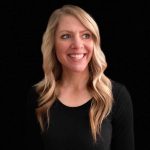 Julie is the founder of Three Keys Investment, which helps people like you find their freedom through multifamily real estate investing so that they can live the life of their dreams! She has invested in single-family homes, house-hacked before it had a name, managed properties from 1k miles away and passively invested in multifamily assets. Currently, Julie is passively invested in nearly 300 doors, strategically partnered in 68 Atlanta based and a general partner in 120 units.
Julie is the founder of Three Keys Investment, which helps people like you find their freedom through multifamily real estate investing so that they can live the life of their dreams! She has invested in single-family homes, house-hacked before it had a name, managed properties from 1k miles away and passively invested in multifamily assets. Currently, Julie is passively invested in nearly 300 doors, strategically partnered in 68 Atlanta based and a general partner in 120 units.
Her podcast The Conscious Investor is designed to support investors at every step of their journey. From mindset and personal development to powerful insight from a variety of professionals, listeners are invited to unravel and discover the harmony in life, family and wealth.
Julie’s experience as a public school teacher, ability to relate with people and genuine care for their financial well-being allow her to raise capital for the team’s offering. She serves clients as a high performance coach and runs the Five Week Book & Networking Club as well as an accountability group.
Her free time is filled with backcountry mountain biking with family and friends, baking delicious treats to share with others and writing grants for 9B Trails, a local non-profit and leading book clubs to stimulate minds and build community.
Our sponsor, Tribevest provides the easiest way to form, fund, and manage your Investor Tribe with people you know, like, and trust. Tribevest is the Investor Tribe management platform of choice for Jim Pfeifer and the Left Field Investors’ Community.
Tribevest is a strategic partner and sponsor of Passive Investing from Left Field.

